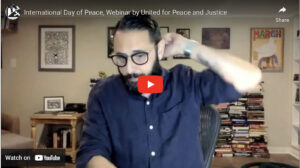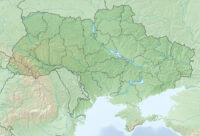As we approach the 74th anniversaries of the U.S. atomic bombings of Hiroshima and Nagasaki, our world is facing numerous nuclear flashpoints within global conflicts and crises that could catastrophically escalate at any moment.
The formal U.S. withdrawal on August 2 from the Intermediate-Range Nuclear Forces (INF) Treaty is another sign of deepening crisis among the nuclear-armed states. Following the 2002 U.S. withdrawal from the Anti-Ballistic Missile Treaty, this latest move imperils the entire structure of arms control and disarmament, including prospects for extension of the New START Treaty that expires in 2021. The dangers of nuclear war are real and growing.
From the Korean Peninsula, to the South China Sea, to the Middle East and South Asia, all the nuclear-armed states are engaged in unpredictable conflicts that could catastrophically escalate out of control. Tensions between the U.S. and Russia have risen to levels not seen since the Cold War, with the two nuclear giants confronting each other in Ukraine, Eastern Europe, and Syria and an accelerated tempo of military exercises and war games, both conventional and nuclear, on both sides. Risky close encounters between Russian and U.S./NATO forces have increased dramatically in the Baltic region and Syria.
Under Trump, when inflation and the novel concepts in his Nuclear Posture Review are included, the U.S. is on a path to spend nearly $2,000,000,000,000 (trillion) over thirty years to upgrade its nuclear weapons complex, warheads and delivery systems. Russia, China, France, U.K., India, Israel and Pakistan have embarked on nuclear modernization programs of their own. While halting talks with North Korea have commenced, the Trump Administration scuttled the Iran nuclear deal and is escalating pressure on the Iranian regime.
Today, nearly 14,000 nuclear weapons, most an order of magnitude more powerful than the U.S. atomic bombs that destroyed Hiroshima and Nagasaki— 92% held by the United States and Russia – continue to pose an intolerable threat to humanity.
Despite their animosities toward each other, all the nuclear-armed nations are united in opposition to the new Treaty on the Prohibition of Nuclear Weapons (Ban Treaty), and the original nuclear-armed states are continuing to ignore their obligations under the 1970 Nuclear Nonproliferation Treaty to end the arms race at an early date and to negotiate “in good faith” the elimination of nuclear weapons.
On January 25, 2018 The Bulletin of the Atomic Scientists moved the hands of its symbolic Doomsday Clock 30 seconds closer to the end of humanity – two minutes to midnight—as close as it’s ever been set since its inception in 1947. In moving the clock 30 seconds closer to the hour of the apocalypse, the Bulletin cited “the failure of President Trump and other world leaders to deal with looming threats of nuclear war and climate change.”
On January 27 of this year, the Bulletin reset the Doomsday Clock at two minutes to midnight stating: “The current international security situation—what we call the ‘new abnormal’—has extended over two years now. It’s a state as worrisome as the most dangerous times of the Cold War…. This new abnormal is simply too volatile and dangerous to accept as a continuing state of world affairs.”
Growing nuclear dangers have moved from the periphery to the center of anti-war concerns. Since 2006 UFPJ has declared August Nuclear-Free Future Month. Act now!
Join a rally, march, vigil or nonviolent direct action. August 6th and 9th will mark the 74th anniversaries of the U.S. atomic bombings of Hiroshima and Nagasaki. Rallies, marches, vigils and nonviolent direct actions are planned across the country and around the world. Click here to find an action near you.
Sign and circulate the Hibakusha Appeal. Having experienced unbearable devastation and sorrow, the A-bomb survivors – known as “hibakusha”, continue to passionately appeal for a world without nuclear weapons based on their conviction that “no one shall ever again suffer as we have”. In the face of growing nuclear dangers they have launched the “Hibakusha Appeal”, a major international petition drive “call[ing] on all State Governments to conclude a treaty to ban and eliminate nuclear weapons. The average age of the Hibakusha now exceeds 80. It is our strong desire to achieve a nuclear-weapon-free world in our lifetime so that succeeding generations of people will not see hell on earth ever again.”
Make nuclear disarmament an issue in the 2020 Presidential Campaign. The U.S. Conference of Mayors, the nonpartisan association of cities with populations of 30,000 or more, on July 1 unanimously adopted a resolution submitted by U.S. members of Mayors for Peace Calling on All Presidential Candidates to Make Known Their Positions on Nuclear Weapons and to Pledge U.S. Global Leadership in Preventing Nuclear War, Returning to Diplomacy, and Negotiating the Elimination of Nuclear Weapons. Bring this resolution to the attention of your mayor, your Congressional representatives, the Presidential candidates, and the TV networks that will be hosting the Presidential debates.
Promote diplomacy and international law – from the bottom up! It’s clear that we can’t rely on national governments to lead us back from the brink. Here’s and op-ed to stimulate your thinking: As Treaties Collapse, Can We Still Prevent a Nuclear Arms Race?
Get your city council to adopt a resolution. Last year, the USCM unanimously adopted a Mayors for Peace resolution Calling on the Administration and Congress to Step Back From the Brink and Exercise Global Leadership in Preventing Nuclear War. This resolution is designed to be used by a number of campaigns including Back from the Brink, Divest From the War Machine, and the Treaty Compliance Campaign. Circulate it widely, along with the 2019 USCM resolution (above) as an educational and advocacy tool. Quote it in op-eds and letters to the editor. Send it to your Congressional representatives. Ask your City Council to endorse the resolution and adopt their own.
Enroll your Mayor in Mayors for Peace! Founded in 1982 by the Mayors of Hiroshima and Nagasaki, Mayors for Peace is working for a world without nuclear weapons and safe and resilient cities as essential measures for the realization of lasting world peace. Mayors for Peace has grown to 7,785, cities in 163 countries, with 215 U.S. member cities, representing in total over one billion people. Mayors for Peace aims to reach 10,000 members by 2020, the 75th anniversary of the U.S. atomic bombings of Hiroshima and Nagasaki. Click here to find out if your Mayor is a member of Mayors for Peace. Click here to find out how to enroll your Mayor. For more information contact Mayors for Peace North American Coordinator, Jackie Cabasso at wslf@earthink.net
Act now! The UFPJ Coordinating Committee



